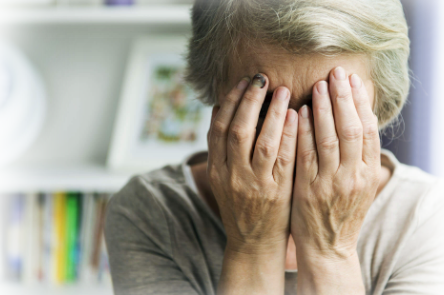Unfortunately, according to the Alzheimer's Association, elder abuse can occur anywhere, particularly in care settings. People with dementia are especially vulnerable since the disease may prevent them from reporting the abuse or even recognizing it as such.

Always Be Mindful of Elder Abuse
Let's begin by viewing the following highly instructive video just presenting an overview of how to recognize elder abuse and some thoughts on how and why it is sadly occurring. The source of the video is Moran Elder Law first published on YouTube 0n Jan 25, 2016.
Abuse Types
As overviewed in the video, abuse can take many forms:
Physical: causing physical pain or injury
Emotional: verbal assaults, threats of abuse, harassment and intimidation
Neglect: failure to provide necessities, including food, clothing, shelter, medical care or a safe environment
Confinement: restraining or isolating the person
Financial: the misuse or withholding of the person's financial resources (money, property) to his or her disadvantage or the advantage of someone else
Sexual abuse: touching, fondling or any sexual activity when the person is unable to understand, unwilling to consent, threatened or physically forced
Willful deprivation: willfully denying the person medication, medical care, food, shelter or physical assistance, and thereby exposing the individual with Alzheimer's to the risk of physical, mental or emotional harm
Self neglect: Due to lack of insight and cognitive changes, a person with Alzheimer's may be unable to safely and adequately provide for day-to-day needs, and may be at risk for harm, falls, wandering and/or malnutrition.
Signs of Abuse
While one sign does not necessarily indicate abuse, signs that there may be a problem include the following:
Bruises, pressure marks, broken bones, abrasions and burns may be an indication of physical abuse, neglect or mistreatment
Unexplained withdrawal from normal activities, a sudden change in alertness or unexpected depression may be an indicator of emotional abuse
Bruises around the breasts or genital area may be a sign of sexual abuse
Sudden changes in financial situations may be the result of exploitation
Bedsores, unattended medical needs, poor hygiene and unusual weight loss may indicate neglect
Belittling, threats or other uses of power by spouses, family members or others may indicate verbal or emotional abuse
Strained or tense relationships and frequent arguments between the caregiver and person with disease may be a sign of abuse. Abuse may originate from either a caregiver or a person with dementia. A person with dementia may exhibit more aggressive behaviors as the disease progresses and cognitive function and ability to reason decline. No one should live in threat of harm or danger to themselves or others
Know your rights
If you or someone you care for is living in a care facility, you should be aware of a resident’s rights to quality care. By educating yourself, you can monitor the level of care at the facility and, should a problem arise, know when to speak up and take action. The following information will help you learn about the rights and how to document problems, communicate effectively and find outside resources if necessary. If a person cannot exercise his or her rights, someone else must act to protect them. A person in residential care has the right to:
Get information
Participate in care
Make choices
Voice complaints
Be treated with dignity and respect in privacy and confidentiality
Have possessions stored securely
Time is always of the essence -- one only has a short time-frame to take action. It may be most optimum to leave one facility and transfer to another after you have performed the necessary research.
